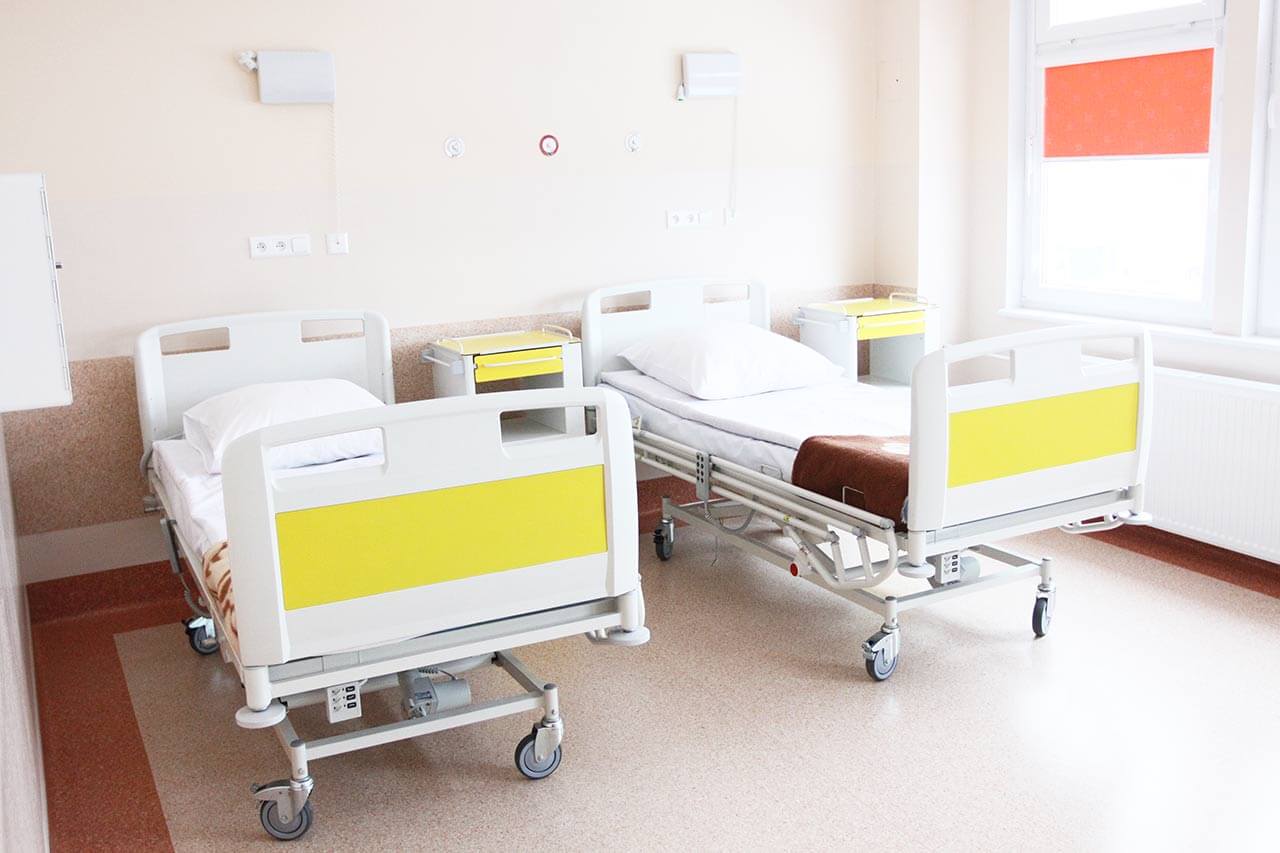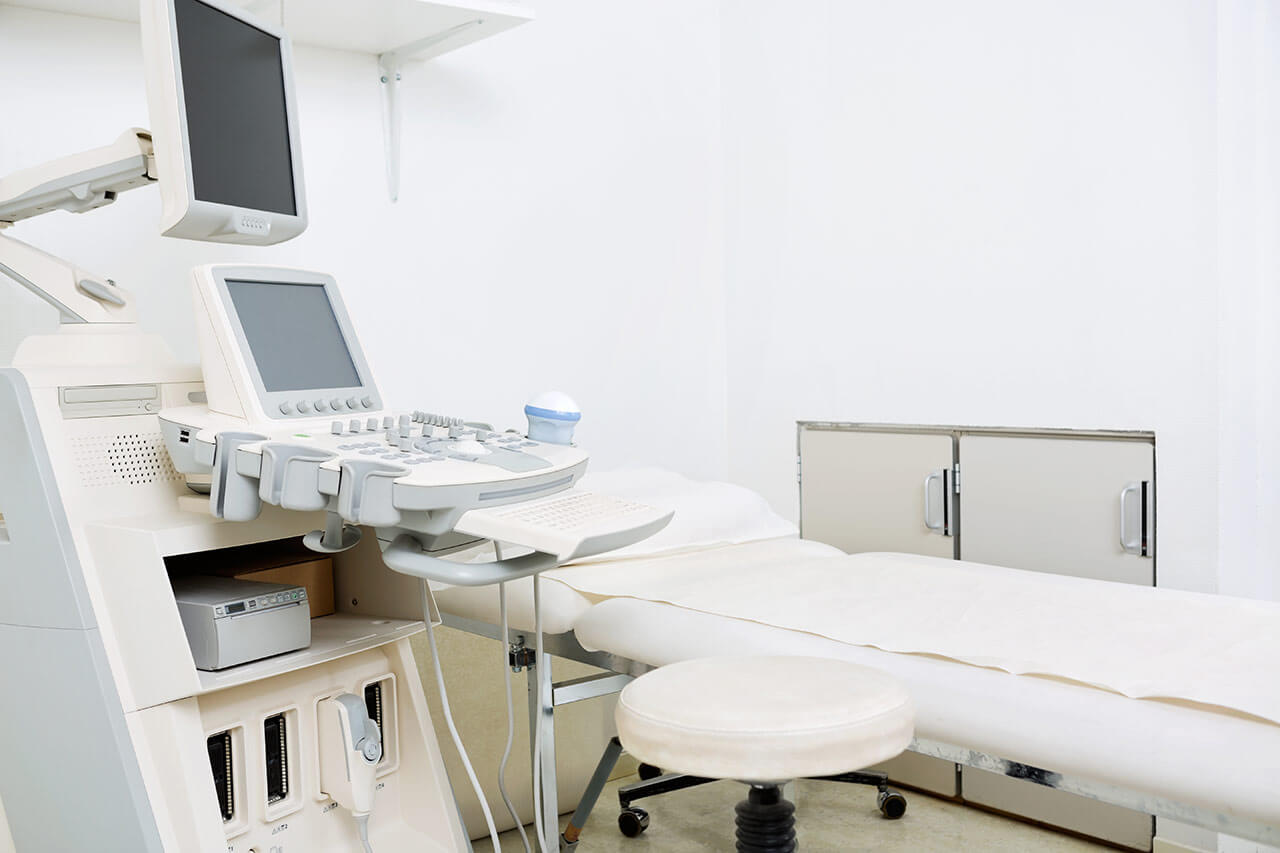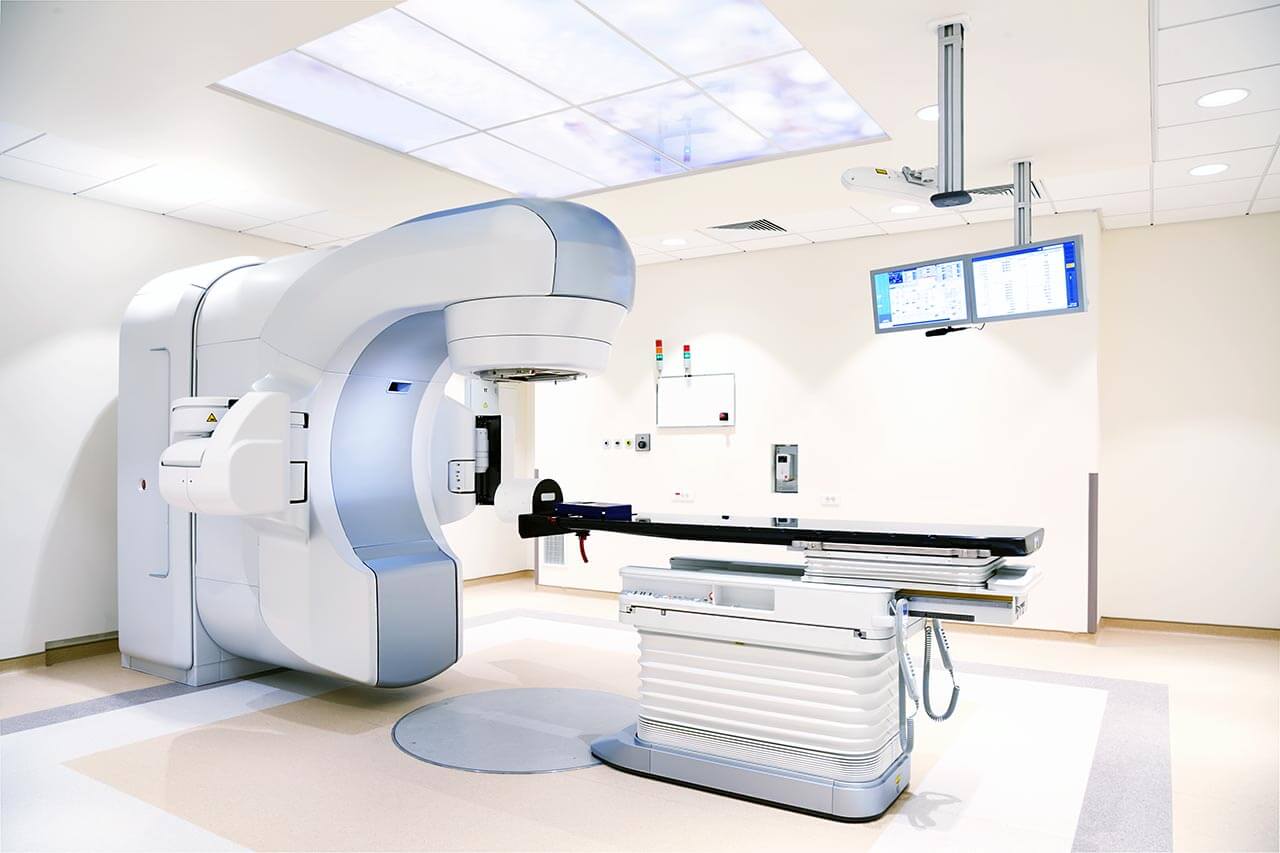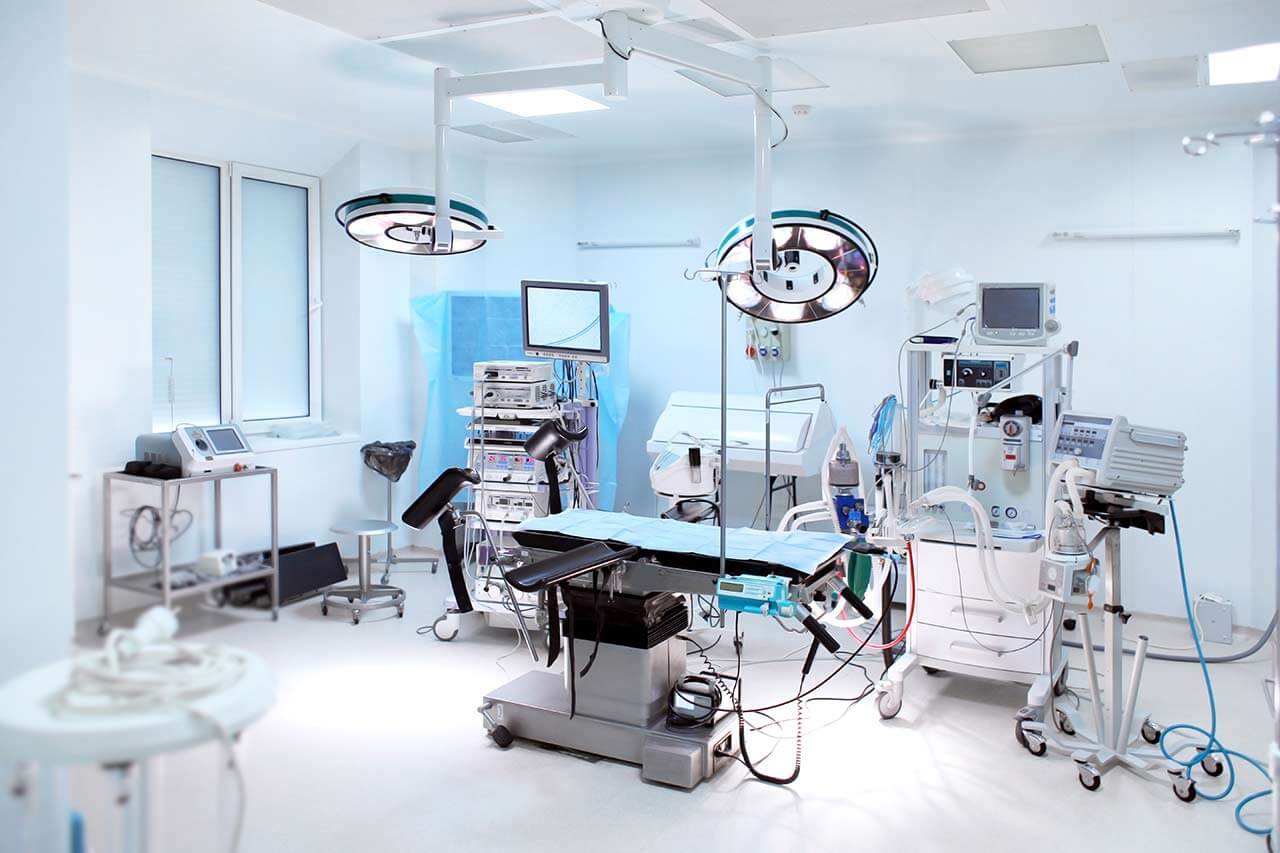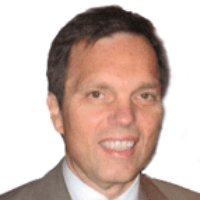
The program includes:
- Initial presentation in the clinic
- clinical history taking
- review of medical records
- physical examination
- laboratory tests:
- complete blood count
- general urine analysis
- biochemical blood test
- inflammation markers (CRP, ESR)
- blood coagulation analysis (aPTT, PT, INR)
- autoimmune tests
- ultrasound of the urogenital system
- CT/MRI of the abdomen and pelvic organs
(if indicated clinically, additional cost is 650/1200€) - nursing services
- consultation of related specialists
- treatment by chief physician and all leading experts
- explanation of individual treatment plan
Required documents
- Medical records
- Abdonimal and retroperitoneum US scan (if available)
- Abdonimal and retroperitoneum MRI/CT scan (if available)
Service
You may also book:
 BookingHealth Price from:
BookingHealth Price from:
About the department
The Department of Nephrology at the University Hospital Duesseldorf offers the full range of diagnostics and treatment of acute and chronic kidney diseases, including systemic diseases with kidney lesion, as well as the preoperative and postoperative treatment of patients in the case of kidney transplantation. In addition, the department is the European Hypertension Center of Excellence, therefore, the doctors have unique expert knowledge to ensure effective treatment of primary, secondary and resistant to therapy arterial hypertension. The department is headed by Prof. Dr. med. Christian Rump.
One of the priorities of the department is the treatment of patients with autoimmune and non-autoimmune systemic diseases, such as vasculitides (immunological inflammation of small blood vessels) or amyloidosis (tissue dysfunction due to the deposition of proteins in them, in particular, involving the kidneys, heart and nervous system). In addition, the department offers a competent medical care for patients with kidney diseases in diabetes mellitus.
The therapeutic options of the department cover all extracorporeal procedures of renal replacement therapy, such as hemodialysis, peritoneal dialysis, special procedures of plasma exchange, immunoadsorption, etc.
The service range of the department includes:
- Diagnostics and treatment of acute and chronic kidney diseases (for example, glomerulonephritis, diabetic or hypertensive kidney disease, bacterial inflammatory kidney diseases)
- Diagnostics and treatment of systemic autoimmune diseases with kidney lesion (for example, lupus nephritis, granulomatous vasculitis)
- Genetic kidney diseases (for example, familial cystic kidney, Fabry disease, Alport syndrome)
- Diagnostics and treatment of hypertension
- Diagnostics and treatment of rare kidney diseases
- Renal replacement therapy
- Dialysis
- Hemodialysis
- Plasmapheresis
- Immunoadsorption
- Preparation and postoperative care after kidney transplantation
- Kidney transplantation, including from living donors
- Ultrasound diagnostics
- B-mode ultrasound
- Duplex ultrasound (for example, to exclude renal artery stenosis)
- Duplex ultrasound (continuous-wave and pulse-wave mode)
- Sonography in continuous ambulatory peritoneal dialysis
- Contrast-enhanced sonography
- Sonography of the limb vessels
- Determination of carotid intima-media complex thickness
- Ultrasound-guided kidney biopsy
- Ultrasound-guided drainage installation (for example, in abscess, pleural effusion, ascites)
- 24-hour blood pressure monitoring
- Other diagnostic and therapeutic services
Curriculum vitae
Education
- 1978 - 1984 Study of Medicine at the Faculty of Medicine at the Albert Ludwig University of Freiburg, Germany; Intern, Karlsruhe Municipal Hospital; doctoral thesis defense (Dr. med.), University of Freiburg; Admission to medical practice.
- 1993 Training for the Medical Specialist in Internal Medicine, University Hospital Freiburg.
- 1996 Training for the Medical Specialist in Nephrology, University Hospital Freiburg.
Positions
- 1984 - 1985 Assistant Physician, Pathology, University of Cologne.
- 1985 - 1987 Research Fellow, Institute of Pharmacology, University of Melbourne (Australia).
- 1987 - 1993 Medical Specialist, Medical Specialist, University of Freiburg.
- 1994 PD and Senior Physician, Internal Medicine, University of Freiburg.
- 1995 Research Fellow in the Department of Pharmacology, University of California, San Diego, USA.
- 1996 - 2001 PD and Senior Physician, Internal Medicine, University of Freiburg.
- 2002 - 2007 C4 Professor in Internal Medicine and Head of the Department of Nephrology and Hypertension, Marienhospital Herne, Ruhr University Bochum.
- 10/2007 W3 Professor, Head of the Department of Nephrology, University Hospital Duesseldorf.
Scholarships and Scientific Awards
- 1985 - 1987 Feodor Lynen Scholarship, Alexander von Humboldt Foundation.
- 1992 Nils Alwall Prize of the German Association of Clinical Nephrology.
- 1995 Research Scholarship of the German Research Foundation (DFG).
Other Activities and Qualifications
- 2003 Expert on the clinically significant hypertension of the European League in Arterial Hypertension.
- 2003 - 2007 Dean of the Faculty of Medicine, Ruhr University Bochum.
- 2004 - 2010 Board Member of the German Society of Hypertension
- 2005 Medical Expert of the German Society of Hypertension.
- Since 1998, Reviewer of the German Research Foundation (DFG) for the Projects on Renal Function and Arterial Hypertension.
- 2010 - 2012 Head of the Working Group "Heart – Kidney" of the German Society Of Cardiology.
Photo of the doctor: (c) Universitätsklinikum Düsseldorf
About hospital
According to the authoritative Focus magazine, the University Hospital Duesseldorf ranks among the top Germany hospitals!
The hospital is an excellent example of a combination of high-quality health care, research and teaching activities. With more than 50,000 inpatients and about 300,000 outpatients every year, the hospital is one of the largest and most prestigious medical institutions in Germany and Europe.
Modern, safe and sparing diagnostic and therapeutic methods guarantee effective treatment of various diseases and their consequences. All therapeutic processes are based on an interdisciplinary approach, which provides comprehensive medical care and optimal treatment result. Obviously, one of the key roles in the successful clinical practice of the medical institution is played by a highly qualified medical personnel, which consists of the best world-class doctors. The hospital also has a special advantage due to the structured equipment with the innovative medical technologies.
The hospital presents almost all fields of modern medicine. Special attention should be given to such focuses as oncology and hematology, stem cell transplantation, neurosurgery and neurology, urology, obstetrics and gynecology, hepatology, kidney transplantation, vascular surgery, cardiac surgery, pediatric surgery, pediatric oncology, etc.
In addition to the outstanding quality of medical services, the hospital guarantees each patient an attentive care, friendly atmosphere, as well as sensitive and respectful attitude.
Photo: (с) depositphotos
Accommodation in hospital
Patients rooms
The patients of the University Hospital Duesseldorf live in comfortable single, double and triple rooms. The patient rooms are made in bright colors and modern design. The room furnishing includes an automatically adjustable bed, a bedside table, a wardrobe, a telephone, a multimedia device (TV, radio, Internet access), a table and chairs for receiving visitors. To use the phone and multimedia device, the patient should have a special chip card, which can be purchased at the reception. In the pediatric departments multimedia device can be used for free.
Meals and Menus
The patients of the hospital are offered a varied, tasty and healthy diet. Every day there are three menus to choose from for adults and four menus to choose from for children, while it is possible to develop an individual menu. When pre-ordering, the international patients may have dishes of various cuisines of the world, for example, Asian and African cuisine. If a patient needs a diet in accordance with the clinical indications, he will be provided with a special diet menu, including drinks.
Every day, the nurses inform the kitchen workers about the patient wishes using an electronic data processing system. Immediately before serving food, there are printed special cards, which indicate for which patient this or that dish is intended.
Also, the hospital houses a cafeteria with a rich selection of delicious, healthy dishes, snacks and drinks.
Further details
Standard rooms include:
Religion
Christian priests are available for the patients at any time. Representatives of other religions may be requested at any time.
Accompanying person
Your companion may stay with you in your room or at a hotel of your choice during the fixed program.
Hotel
You may stay at the hotel during the outpatient program. Our employees will support you for selecting the best option.
The hospital offers a full range of laboratory tests (general, hormonal, tests for infections, antibodies, tumor markers, etc.), genetic tests, various modifications of ultrasound scans, CT scans, MRI and PET / CT, angiography, myelography, biopsy and other examinations. Treatment with medications, endoscopic and robotic operations, stereotaxic interventions is carried out here, modern types of radiation therapy are also used. The hospital offers patients all the necessary therapeutic techniques.
- Dermatosurgery
- Skull base surgery
- Gastric bypass and bandage
- Removal of lung metastases
- Interventions on the spine
These are skin cancer (including melanoma), head and neck tumors, pathological changes in the chest (including funnel chest), obesity, liver diseases, HIV and other infectious diseases, varicose veins, aortic aneurysm, carotid artery stenosis, joint diseases and other pathologies.
- Dermatology
- Oncology
- Otorhinolaryngology
- Endocrinology and diabetology
- Orthopedics and traumatology
Over 800 highly qualified physicians work at the hospital.
